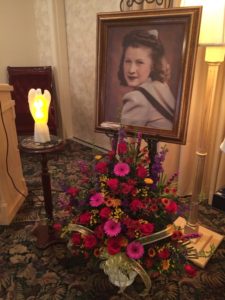“You’re only given a little spark of madness. And if you lose that…you’re nothing.”
This was said by the late, great Robin Williams during one of his stand-up routines in the late 1970s. It started making the rounds again shortly after his death a few years ago, which was when I saw it. The routine was strangely ironic yet fitting because Mr. Williams was pretending to be himself as an old man.
All of that aside, what struck me were the words themselves. I’ve mulled them over in my mind many times since hearing them. They communicate something that, at least to me, is both obvious and yet hard to explain. They resound with me as an artist and raging creative. Considering I’m “weird” even compared to some of my fellow artists, I found those words even more poignant.
Artists—whether they be painters, writers, dancers, etc.—simply don’t think like everyone else. Their minds entertain all sorts of unusual possibilities. They revel in ideas and concepts. They obsess over how to explore those ideas in new ways. This makes them difficult to understand and, at times, to appreciate. Just think about the countless stories about young filmmakers or authors who grew up with blue collar parents who didn’t understand how their creative children could make a living with their art. Often they would pressure them to not pursue their dreams in favor of something “normal.” This would often force those artists to squelch their creativity and personality, making them deny who they were.
As a Christian, I believe I serve a creative God. He made mankind in His image. Part of that image is creativity. The “little spark of madness” Robin Williams spoke of? I think that’s a piece of the “divine spark”—the “breath of life,” as Genesis puts it—imbued into each human being by God Himself. To ignore this spark, to bury it, to “hide it under a bushel” (as the old song says), is tantamount to denying God, and by extension, reduces a human being to a machine.
As Mr. Williams said, it’s only a “little spark,” which I would say is a tiny piece of the overabundance of creativity possessed by God. He generously shares it with humans. But because of that, it is fragile and can be lost. Too often the world berates those who are creative, whether out of fear or jealousy or something else, not realizing that their personal little worlds are touched and enhanced by art. How often do those people come home from a long day at work and watch TV or Netflix? Without artists, there would be no content for them to consume. Even those who are Christians sometimes fail to see that God didn’t create a strictly utilitarian universe. A quick look out their window would show them this. For example, leaves turn bright colors in autumn not just because their chlorophyll is depleted in preparation for winter, but because God wanted that time of year to look like a unique, earthy tapestry.
If you’re a creative, you owe it to yourself to hold onto that “little spark of madness.” Don’t let anyone take it from you. That may be hard to do, but in the end, you’ll be doing yourself and others a tremendous favor. Art enhances life, and artists are the means by which that art can touch the world.
What advice would you give those who want to retain their “little spark of madness”?

